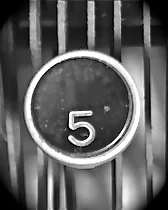5 HOT BOOKS: A Presidential Impeachment, Investigating a 'Welfare Queen,' and More
/1. The Impeachers: The Trial of Andrew Johnson and the Dream of a Just Nation by Brenda Wineapple (Random House)
Wineapple’s dramatic account of the first impeachment of a U.S. president may evoke comparison with current events, but more than a historic parallel, this book immeasurably adds nuance to understanding the political and social dynamics of the Reconstruction era. With the keen insight she demonstrated in her earlier work on the 19th century, most recently Ecstatic Nation: Confidence, Crisis, and Compromise, 1848-1877, Wineapple zeros in on the story of accidental president and Southern Democrat Andrew Johnson, elevated after the assassination of Abraham Lincoln. She details his reckless attitude toward Congress and government, his faux populism, and the aid and comfort he gave white supremacists as a Unionist who fought Reconstruction and obstructed justice. Wineapple depicts the full scope of Johnson’s promise and the disappointing actions he took once he achieved power, along with a woeful catalog of the damage he did to the country.
2. The Queen: The Forgotten Life behind an American Myth by Josh Levin (Little, Brown)
Chicago headlines described Cadillac-driving Linda Taylor as a “welfare queen,” fueling public hysteria about welfare abuse that campaigner Ronald Reagan amplified as an outrageous example of fraud. In his great work of investigation, Levin, who is editorial director of Slate, uncovers this creation myth and argues that it hardened into a stereotype deployed to chip away at benefits for the poor. Levin has written a fascinating tale of how the myth was constructed, but he has also dug deeply into Taylor’s story, revealing her as to be a grifter, a thief, and possibly a murderer — a woman who was victimized, but who also victimized those more vulnerable than she.
3. Mr. Know-It-All: The Tarnished Wisdom of a Filth Elder by John Waters (Farrar, Straus & Giroux)
“That John Waters is a national treasure is a surety. Period. Thank you and good night,” writes Alan Cumming in his New York Times essay on Waters’ dazzling new book. In this collection of essays punctuated with photographs, the master of camp and king of transgressive film offers nostalgia-free, counterintuitive advice. (“Young filmmakers, go to Hollywood whenever you can. It’s not lonely at the top, I promise you.”) Whether they’re about fashion, love, or his parents, Waters’ thematically connected essays contend with his improbable path to respectability. He once did an art piece composed of close-ups from porn films which provoked no outrage and is now in a museum’s permanent collection. “What the hell has happened?” he asks.
4. The White Devil’s Daughters: The Fight against Slavery in San Francisco’s Chinatown by Julia Flynn Siler (Knopf)
Siler vividly captures the atmosphere of sex trafficking in the late 19th and early 20th century, in which boatloads of Asian girls were enticed to America and, under pressure from criminal syndicates, ended up as prostitutes and indentured servants. Christian missionaries in San Francisco responded by rescuing these women, sheltering them in a home and equipping them with skills, at a time when anti-immigration sentiment ran high. A wonderful storyteller, Stiles places determined Dolly Cameron, leader of the Presbyterian Mission Home, and her assistant Tien Fuh Wu at the center of the struggle and brings to light a little-known chapter in American history.
5. Biloxi by Mary Miller (Liveright)
The Gulf Coast town of Biloxi is the setting for Miller’s new novel, which focuses on a lethargic retiree waiting for an increasingly elusive financial inheritance from his father and ends up with an overweight mutt of a dog. For Mississippi native Miller, this is no heartwarming tale of a curmudgeon and his devoted canine companion, but rather a smart, smoothly told story that magically inspires affection for a set of deeply flawed characters in this beguiling and contradictory Southern coastal town. With her uncanny ability to spot life’s quotidian frustrations, Miller has written a deeply moving, humane, and often funny work of fiction, observed with a piercing gaze.










